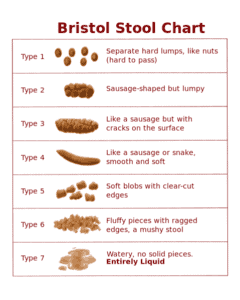Magnesium:
One of The Most Powerful Nutrients and Relaxation Mineral
By: Dr. Mark Hyman, Founder of the Ultrawellness Center
The Critical Importance of Magnesium: Are You Getting Enough?
A deficiency in magnesium, one of the most essential nutrients, can have serious consequences. According to a study published in The Journal of Intensive Care Medicine, a magnesium deficiency doubles your risk of death compared to those with sufficient levels. This nutrient deficiency is linked to a wide range of symptoms and diseases, many of which can be alleviated or even cured by simply increasing magnesium intake.
In my practice, magnesium is a powerful tool for combating illness, yet up to half of Americans are deficient in this vital mineral without even knowing it.
Why Magnesium Matters
Magnesium is not just another mineral; it is an antidote to stress and the most powerful relaxation mineral available. It plays a crucial role in improving sleep, reducing stress, and enhancing overall well-being. Despite its importance, many doctors overlook the benefits of magnesium, even though it is commonly used in conventional medicine.
Magnesium in Conventional Medicine
During my time in the emergency room, magnesium was a critical “medication” on the crash cart. It was used in life-threatening situations like arrhythmias (irregular heartbeats), where intravenous magnesium could save a life. It was also a go-to remedy for constipation and bowel preparation before a colonoscopy, often administered as milk of magnesia or liquid magnesium citrate. For pregnant women facing pre-term labor, high blood pressure of pregnancy (pre-eclampsia), or seizures, high doses of intravenous magnesium were administered continuously.
Everyday Benefits of Magnesium
You don’t need to be in a hospital to benefit from magnesium. Regular supplementation can have significant positive effects on your health. In this blog, I will discuss the benefits of magnesium, including its role in improving sleep. I’ll also highlight various chronic illnesses linked to magnesium deficiency and provide 13 tips for optimizing your magnesium levels.
The Relaxation Mineral
Think of magnesium as the relaxation mineral. Anything that is tight, irritable, crampy, and stiff — whether it is a body part or an even a mood — is a sign of magnesium deficiency.
The Critical Role of Magnesium: Essential for Health
Magnesium is an incredibly important mineral responsible for over 300 enzyme reactions in the body. It is found in all tissues but is primarily concentrated in your bones, muscles, and brain. This essential nutrient is crucial for:
- Energy Production: Necessary for your cells to generate energy.
- Chemical Pumps: Helps various chemical pumps function properly.
- Membrane Stabilization: Stabilizes cell membranes.
- Muscle Relaxation: Assists in muscle relaxation.
Given its extensive role in the body, it’s no surprise that magnesium deficiency is linked to a wide range of health conditions. There are over 3,500 medical references on magnesium deficiency, highlighting its significance.
Despite its critical importance, magnesium is often overlooked because it is not a drug, even though it can be more powerful than many medications. In hospitals, magnesium is used in life-threatening and emergency situations, such as:
- Seizures
- Heart Failure
Signs of Magnesium Deficiency
You might be magnesium deficient if you experience any of the following symptoms:
• Muscle cramps or twitches
• Insomnia
• Irritability
• Sensitivity to loud noises
• Anxiety
• Autism
• ADD
• Palpitations
• Angina
• Constipation
• Anal spasms
• Headaches
• Migraines
• Fibromyalgia
• Chronic fatigue
• Asthma
• Kidney stones
• Diabetes
• Obesity
• Osteoporosis
• High blood pressure
• PMS
• Menstrual cramps
• Irritable bladder
• Irritable bowel syndrome
• Reflux
• Trouble swallowing
* High inflammation (eg. CRP)
The Widespread Issue of Magnesium Deficiency
Magnesium deficiency is a significant concern in our society. According to conservative measurements, such as blood or serum magnesium levels:
- 65% of people admitted to intensive care units have magnesium deficiency.
- 15% of the general population also shows signs of deficiency.
However, these numbers may underestimate the problem. Serum magnesium levels are the least sensitive indicators of total body magnesium. Consequently, the actual rates of deficiency could be even higher.
Why Are We Deficient?
The primary reason for widespread magnesium deficiency is our diet. Many people consume highly-processed, refined foods, including:
- White flour
- Meat
- Dairy
These foods contain little to no magnesium.
Consider how often you eat magnesium-rich foods like:
- Sea vegetables (seaweed)
- Nuts
- Greens
- Beans
For most Americans, nut consumption is limited to peanut butter and chocolate peanut butter cups, which are not high in magnesium.
Factors Contributing to Magnesium Loss
Modern life contributes to magnesium depletion through various factors:
- Excessive alcohol
- High salt intake
- Coffee consumption
- Phosphoric acid in colas
- Profuse sweating
- Prolonged or intense stress
- Chronic diarrhea
- Excessive menstruation
- Diuretics (water pills)
- Antibiotics and other drugs
- Intestinal parasites
For instance, a study in Kosovo showed that people under chronic war stress lost significant amounts of magnesium in their urine.
Absorption Challenges
Magnesium is not only poorly absorbed but also easily lost from the body. To effectively absorb magnesium, you need:
- Adequate dietary magnesium
- Sufficient vitamin B6
- Vitamin D
- Selenium
A recent scientific review highlighted the unfortunate fact that such a low-cost, low-toxicity nutrient like magnesium is associated with diseases causing immense suffering and expense worldwide.
The Solution
Despite its difficulties in measurement and study, magnesium deficiency is relatively easy to correct. If you experience symptoms or conditions related to magnesium deficiency, don’t worry—there are simple ways to address it. Here’s how to start improving your magnesium levels:
Stop Draining Your Body of Magnesium
Limit coffee, colas, salt, sugar, and alcohol.
Learn how to practice active relaxation.
Check with your doctor if your medication is causing magnesium loss (many high blood pressure
drugs or diuretics cause loss of magnesium).
Eat Foods High in Magnesium
Include the following in your diet as often as you can: Kelp, wheat bran, wheat germ, almonds, cashews, buckwheat, brazil nuts, dulse, filberts, millet, pecans, walnuts, rye, tofu, soy beans, brown rice, figs, dates, collard greens, shrimp, avocado, parsley, beans, barley, dandelion greens, and garlic
Take Magnesium Supplements
The RDA (minimum amount needed) for magnesium is 300 mg a day. Most of us get far less than 200 mg.
Some may need much more depending on their condition.
Most people benefit from 400 to 1,000 mg a day.
The most absorbable forms are magnesium citrate, glycinate taurate, or aspartate, although
magnesium bound to Kreb cycle chelates (malate, succinate, fumarate) are also good.
Avoid magnesium carbonate, sulfate, gluconate, and oxide. They are poorly absorbed (and the
cheapest and most common forms found in supplements).
Side effects from too much magnesium include diarrhea (often avoided if you switch to
magnesium glycinate).
Most minerals are best taken as a team with other minerals in a multi-mineral formula.
Taking a hot bath with Epsom salts (magnesium sulfate) is a good way to absorb magnesium
without GI effects.
People with kidney disease or severe heart disease should take magnesium only under a doctor’s
supervision.
So if you’re coping with the symptoms here, relax! Magnesium is truly a miracle mineral. It is essential for lifelong vibrant health.








